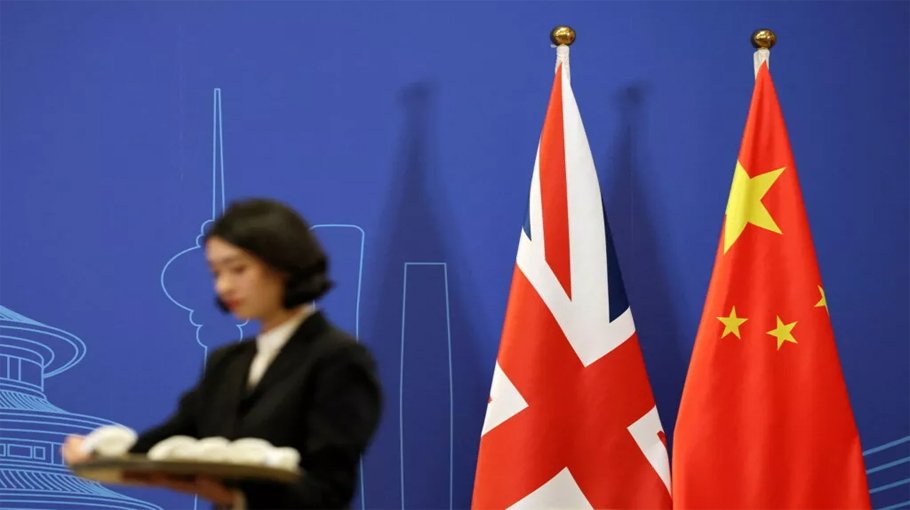The clear case for UK–China climate cooperation

Chris Aylett
When UK Energy Secretary Ed Miliband travelled to China in March 2025 to resume bilateral talks on energy and climate change cooperation, he highlighted two ways in which the Labour government has sharply departed from their Conservative predecessors since taking office in July 2024.
The first is relations with Beijing. Growing security concerns had fuelled an increasingly negative view of Beijing within the Conservative Party, and by March 2024, then-prime minister Rishi Sunak was describing China as the greatest state-based threat to the UK’s economic security. Labour has struck a different tone, making the case for clear-eyed strategic reengagement with the world’s second-largest economy.
The second is climate change. In the runup to the 2024 election, the governing Conservative Party — which had been responsible for pioneering net zero legislation just five years earlier — was now seeking to extract electoral advantage from anti-climate posturing. Labour pledged to put renewables at the heart of energy policy and restore the United Kingdom’s reputation as a leader on climate change.
The case for cooperating with China on climate change is clear. Having cut its carbon emissions in half since 1990, the United Kingdom accounted for less than 1 per cent of global greenhouse gas emissions in 2023. But in the same year, China accounted for 30 per cent of global emissions. By contributing its emissions-cutting know-how to China’s decarbonisation drive, the United Kingdom could have a bigger impact in the fight against climate change than it would by focusing solely on reducing its own emissions.
Cooperation would not work if the two countries were not aligned on the importance of tackling climate change. Fortunately, they are. Each has set ambitious targets and has been taking credible, if not yet sufficient, action. The United Kingdom boasts nearly a fifth of global offshore wind capacity, leading the world until it was overtaken by China in 2021. And in 2024, China installed more than half of the world’s solar photovoltaic capacity.
A high-level Chinese policy document published in April 2025 emphasised the need to develop market-based mechanisms to support low-carbon electricity generation — an area in which the United Kingdom has had considerable success. The United Kingdom’s sophisticated system of carbon budgeting has sparked significant interest among officials and experts in China, who are tasked with designing and executing a smooth downward glide path for the country’s emissions consistent with Beijing’s goal of attaining ‘carbon neutrality’ by 2060.
Gaining a better understanding of Chinese policy approaches would be valuable for the United Kingdom as it accelerates its rollout of clean technologies. China’s innovative Whole County PV program has enabled huge deployment of rooftop solar in rural areas. China has also had remarkable success in ensuring that public charging infrastructure for electric vehicles has kept pace with the surging number of EVs on the road.
Beyond experience-sharing, the two countries can pool technical, scientific and policy expertise to jointly develop effective responses to the increasingly severe impacts of climate change. UK–China collaboration can also set standards in crucial areas such as green finance, building on existing collaboration like the Belt and Road Green Investment Principles.
Cooperation of this type has been relatively uncontroversial in the past, but this may be changing with Donald Trump in the White House. The United States under Trump is working with ideological fervour to banish all forms of climate action, domestically and internationally. Although it is hard to deduce amid the fog of the trade war, his administration appears intent on a substantial decoupling from China, and has reportedly been pressuring other countries to reduce their own ties.
The US administration’s China and climate policies are not unconnected. The United States is the world’s leading producer of oil and gas, while China is the world’s largest producer of low-carbon technologies. At an energy security summit in April 2025, a senior US official described net-zero goals as ‘in the interests of our adversaries’. The US government now sees fighting climate change not as a global public good but as something that benefits Beijing at Washington’s expense.
The United Kingdom is in an awkward position, anxious to preserve its so-called ‘special relationship’ with the United States while simultaneously increasing cooperation with China on a topic Washington views as antithetical to its interests. The United Kingdom could come under US pressure to restrict trade with China which would inevitably hurt the UK–China relationship, with climate cooperation potential collateral damage.
Other headwinds are emanating closer to home. As elsewhere in the world, influential UK media outlets and far-right politicians are spreading disinformation, relentlessly denigrating any efforts to confront climate change. Meanwhile, there is widespread concern over China’s stance across a range of issues and some people reject deepening bilateral relations in principle. Amid persistent security concerns, UK imports of Chinese clean technology products — all but essential if the United Kingdom is to achieve its decarbonisation and energy security ambitions — emerge as a potential political flashpoint.
But none of this should distract from the potential benefits of cooperation. For all the challenges, there is enormous value in pragmatic cooperation between countries that disagree on any number of topics but recognise climate change as a common existential threat that must be urgently addressed. The United Kingdom and China can offer an example on this front for others
to follow.
Chris Aylett is Research Fellow in the Environment and Society Centre, Chatham House.
Source: East Asia Forum



